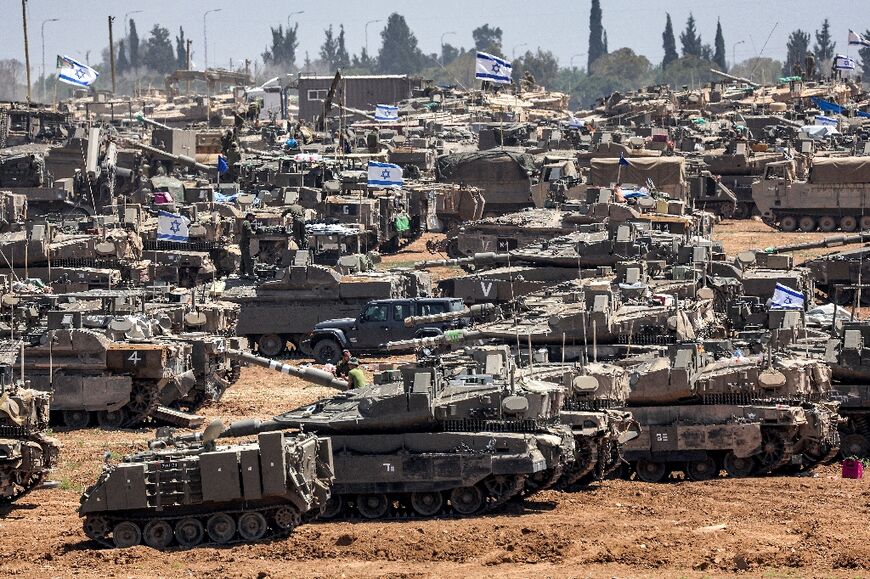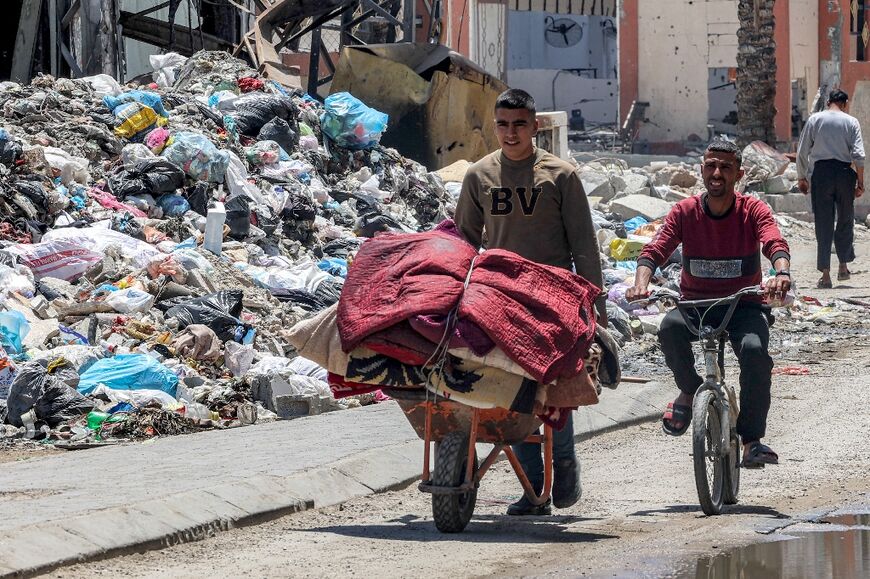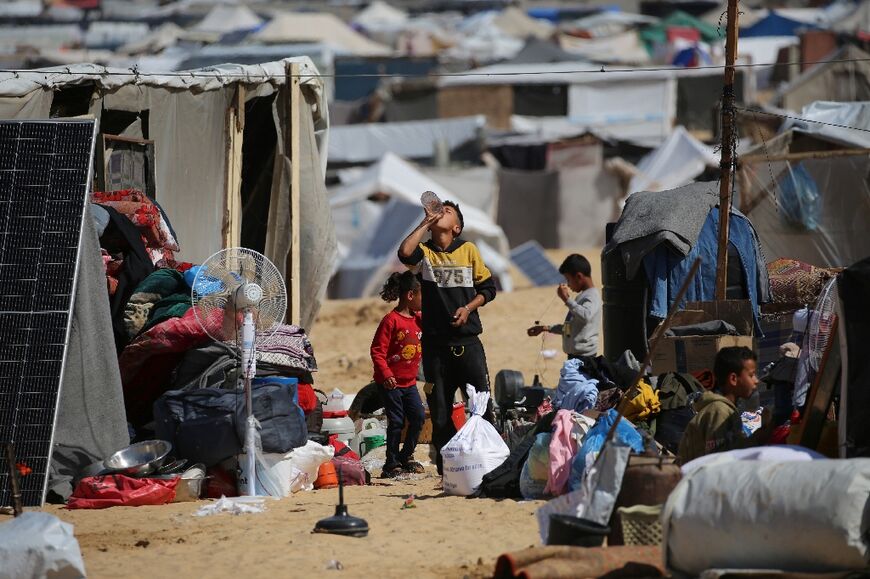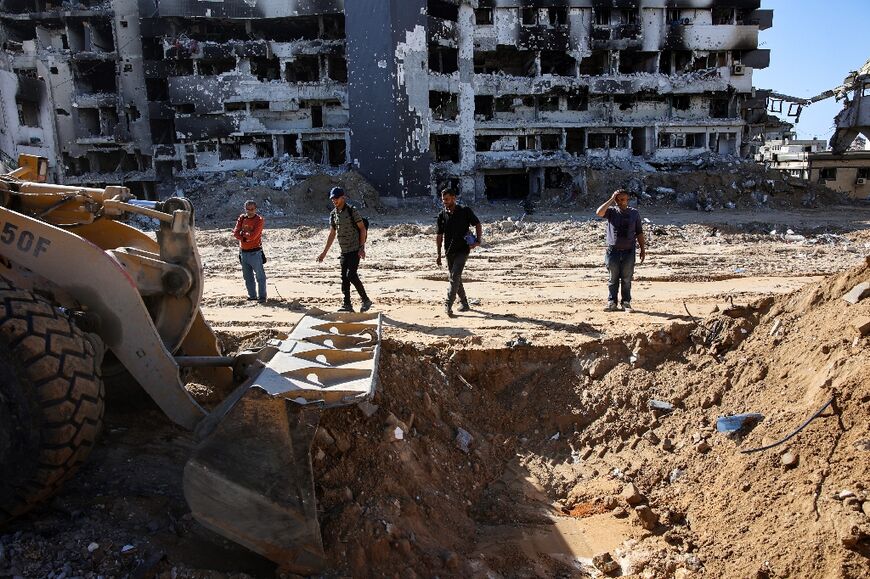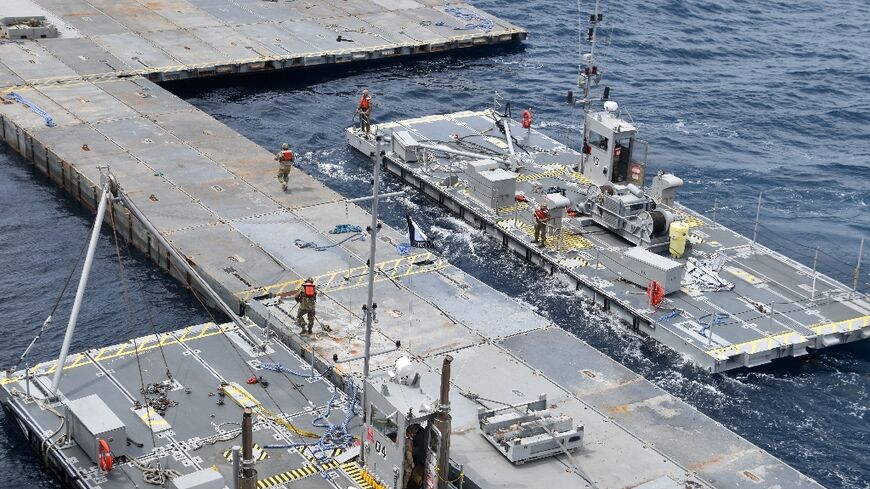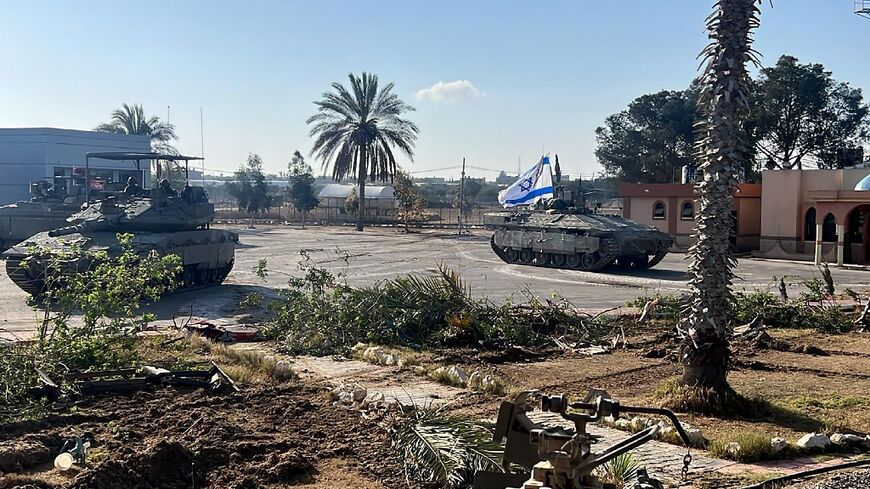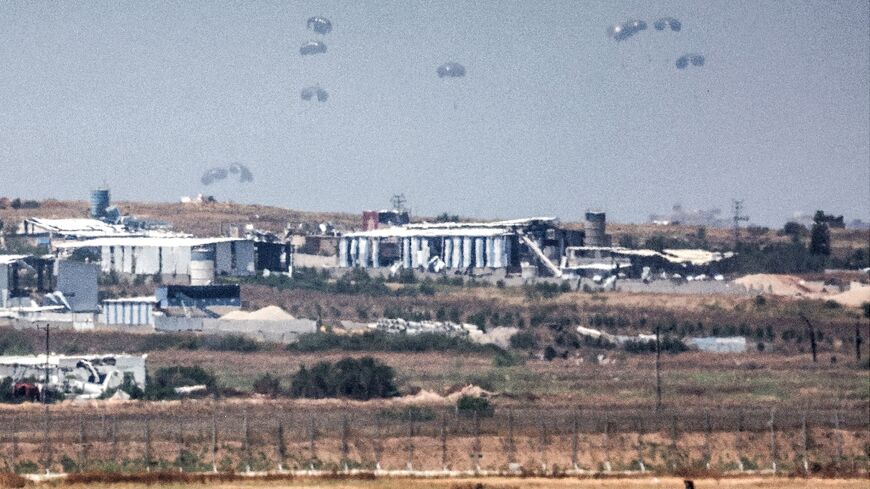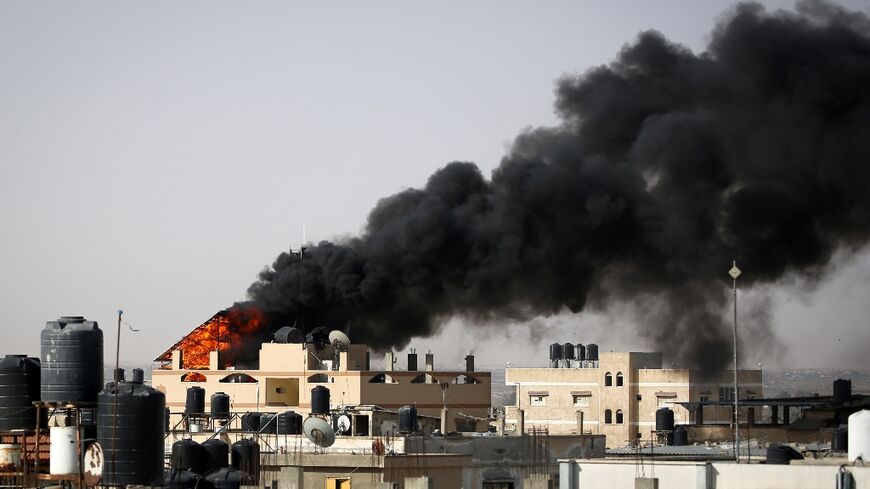Israel hits Rafah despite US warning on arms transfers
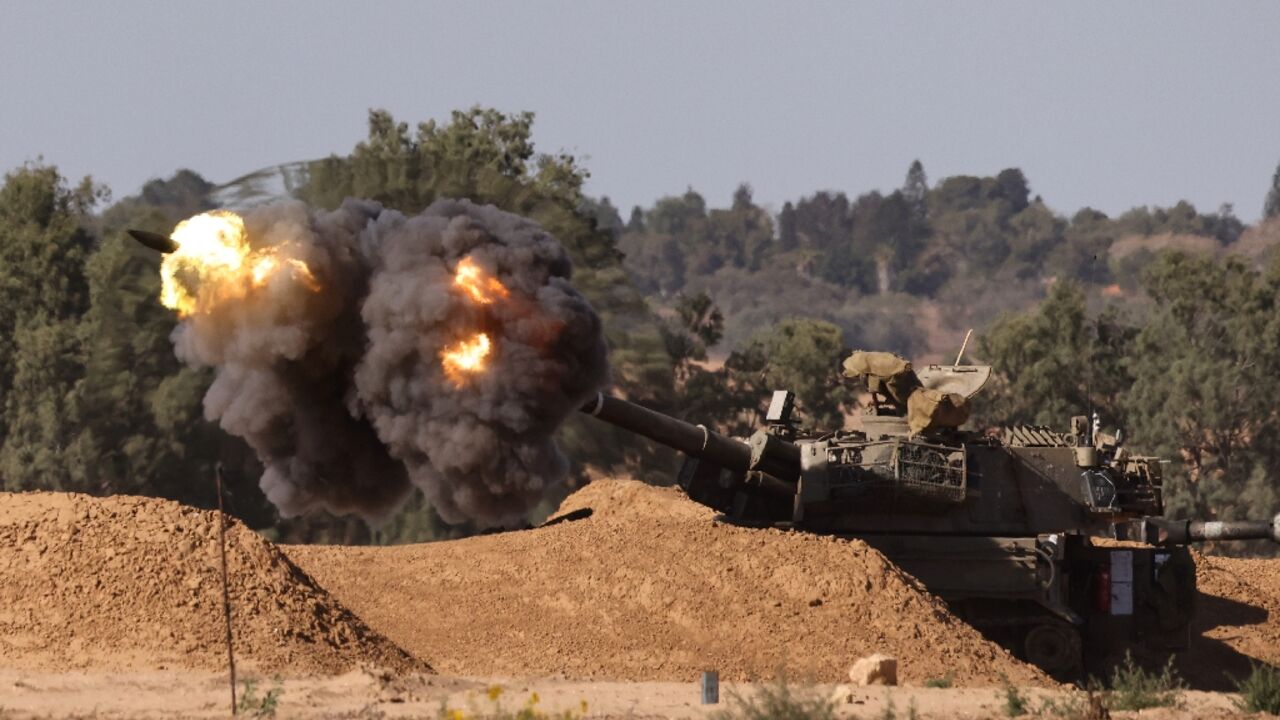
Israeli warplanes struck Gaza's crowded southern city of Rafah Thursday after US President Joe Biden vowed to stop supplying artillery shells and other weapons to Israel if a full-scale assault goes ahead.
It was the starkest warning yet from the United States, Israel's main military provider, over the civilian impact of its war against Hamas.
An AFP correspondent and witnesses on Thursday reported Israeli strikes on several parts of Rafah, where the United Nations said 1.4 million people were sheltering.
"The tanks and jets are striking," Tarek Bahlul said on a deserted Rafah street. "Every minute you hear a rocket and you don't know where it will land."
Israel has already defied international objections by sending in tanks and conducting what it called "targeted raids" in the east of Rafah, the city it says is home to Hamas's last remaining battalions.
The Hamas authorities' "emergency committee" in Rafah dismissed as "nothing but lies" Israel's description of its operation as "limited".
In an interview with CNN on Wednesday, Biden warned he would stop some US weapons supplies to Israel if it carried out its long-threatened ground assault.
Israel on Thursday called Biden's comments "very disappointing".
Biden told CNN: "If they go into Rafah, I'm not supplying the weapons that have been used... to deal with the cities."
"We're not gonna supply the weapons and the artillery shells that have been used."
- Bomb delivery halted -
The fresh warning came after his administration paused delivery last week of 1,800 2,000-pound (907-kilo) bombs and 1,700 500-pound bombs as Israel appeared ready to attack Rafah.
"Civilians have been killed in Gaza as a consequence of those bombs," Biden said. "It's just wrong."
Ties between the allies have become increasingly strained as Biden and other top Washington officials criticise Israel over its conduct of the war.
Pro-Palestinian protests have flared at universities across the United States with an intensity not seen for decades.
The Gaza war began with Hamas's unprecedented October 7 attack on Israel, which resulted in the deaths of more than 1,170 people, mostly civilians, according to an AFP tally of Israeli official figures.
During their October attack militants seized some 250 hostages, of whom Israel estimates 128 remain in Gaza, including 36 who officials say are dead.
Israel's retaliatory offensive has killed at least 34,904 people in Gaza, mostly women and children, according to the Hamas-run territory's health ministry.
- Aid operations 'crippled' -
The United Nations agency for Palestinian refugees, UNRWA, said 80,000 people have fled Rafah since Monday, but "nowhere is safe".
On Tuesday, Israel seized Rafah's border crossing into Egypt, which had been the main entry point for aid.
The White House condemned the aid disruption, and the defence secretary later confirmed Washington had paused the bomb shipment.
In Israel's first reaction to Biden's threat, its UN ambassador Gilad Erdan called it a "very disappointing statement".
Prime Minister Benjamin Netanyahu made no direct mention of the US threat but said in a statement: "If we have to stand alone, we will stand alone."
It has been his repeated refrain in recent days as both international and domestic criticism of his handling of the war have intensified.
Israel's military said Wednesday it was reopening another aid crossing into Gaza, Kerem Shalom, as well as the Erez crossing into north Gaza.
But the head of the UN humanitarian office in the Palestinian territories, Andrea De Domenico, told AFP that military activity at Kerem Shalom made civilian aid deliveries practically impossible.
He said the closure of the Rafah crossing, the only one equipped for fuel deliveries, had effectively halted aid operations.
"In Gaza there are no stocks" of fuel, he said. That "means no movement. It is completely crippling the humanitarian operations."
UNRWA chief Philippe Lazzarini announced late Thursday that the agency was closing its east Jerusalem headquarters after the latest in a spate of attacks by "Israeli extremists" put its staff at "serious risk".
Lazzarini said the compound would remain closed "until proper security is restored".
- US aid ship leaves for Gaza -
A US container ship loaded with aid for Gaza left Cyprus Thursday in a new test of a maritime corridor to get relief into the besieged Palestinian territory, the Cyprus government said.
US military engineers have been assembling a temporary pier to unload aid deliveries but the work has been delayed by heavy seas.
"The platform is expected to be ready by the time the ship arrives in order for the aid to be unloaded and distributed to Palestinians in need," Cyprus government spokesperson Yiannis Antoniou said.
US Secretary of State Antony Blinken has said the pier will "significantly increase" the volume of aid reaching Gaza but said it was not a "substitute" for greater land access via Israel.
Hamas called for an end to aid airdrops Thursday after two Palestinians were killed when an aid pallet crashed into a warehouse after its parachute failed to open.
At least 21 people have now been killed in Gaza airdrops by Arab and Western air forces that have gone wrong, according to the Hamas authorities.
Israeli and Hamas negotiating teams left Cairo Thursday after what the Egyptian hosts described as a "two-day round" of indirect negotiations on the terms of a Gaza truce, Egypt's state-linked Al-Qahera News reported.
White House National Security Council spokesman John Kirby said the head of the US delegation, CIA director Bill Burns was also headed home.
"That doesn't mean there aren't still ongoing discussions," Kirby said.
"We still believe that there's a path forward, but it's going to take some leadership on both sides."
At a makeshift refugee camp in Rafah, Mazen al-Shami said she was fed up.
"We have no money and we don't have the means to move from one place to another again and again. We have no means at all," Shami said.
burs-kir/hkb


